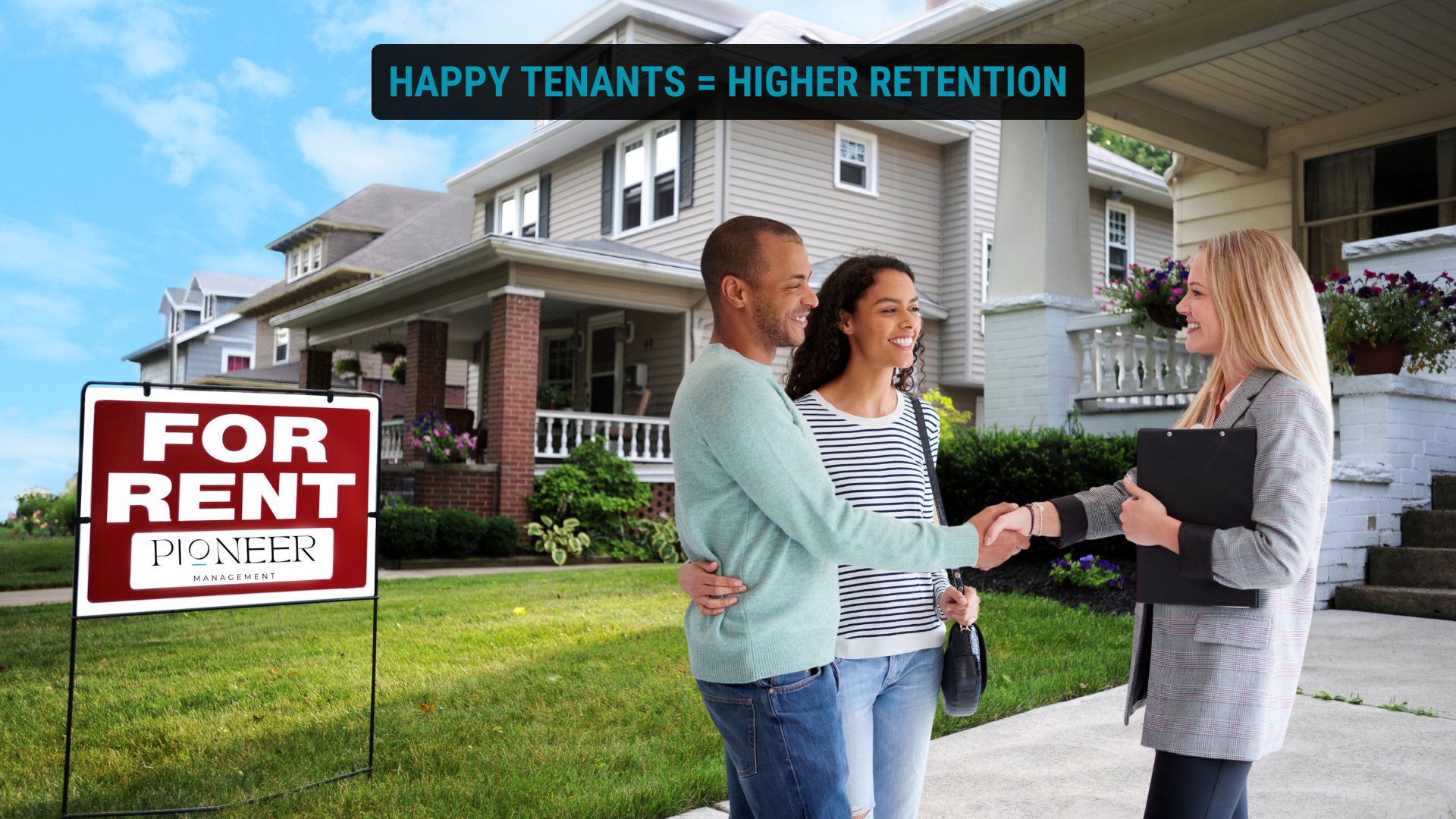As a rental property owner, keeping your units occupied with reliable, long-term tenants is one of the most effective ways to maximize profits and minimize headaches. While acquiring new tenants is necessary at times, turnover comes with real costs—lost rental income, marketing expenses, make-ready repairs, and administrative time.
Fortunately, high tenant retention is achievable with the right systems and approach. In this post, we’ll share the tested and proven strategies we use at Pioneer to retain good tenants, build strong landlord-tenant relationships, and maintain a stable, income-producing portfolio.
Why Tenant Retention Matters
High turnover is expensive. The average cost of tenant turnover can range from $500 to $3,000 or more, depending on:
Vacancy duration
Cleaning and repairs
Marketing and screening
Leasing commissions
Utility and holding costs
Beyond these direct expenses, turnover introduces uncertainty. Extended vacancies or poor tenant fit can reduce your net income and increase your risk profile.
When you prioritize retention, you benefit from:
Steady, predictable rental income
Lower maintenance and repair costs (longer-term tenants tend to treat the home better)
Fewer marketing and leasing expenses
Better community atmosphere in multi-family units
1. Start with Thorough Tenant Screening
Retention starts before move-in. When you place well-qualified tenants, you're more likely to keep them long-term.
Key screening criteria should include:
Solid rental history
Reliable income (2.5x to 3x rent is recommended—our standard at Pioneer)
Clean credit and background checks
Timely and clear communication during the application process
Avoid rushing to fill a vacancy. Taking a bit more time to find the right tenant often results in a longer, more profitable tenancy.
2. Build a Strong Move-In Experience
First impressions matter. A clean, well-prepared unit and a friendly onboarding process set the tone for a professional relationship.
Tips for a smooth move-in:
Provide a detailed move-in checklist and welcome letter
Share a move-in video guide covering home maintenance tips and property-specific details (e.g., water shutoff location, mailbox, etc.)
Ensure all appliances, fixtures, and locks are functioning
Clean thoroughly before move-in
Offer a digital orientation guide
Follow up one week after move-in
When tenants feel cared for from the start, they’re more likely to stay.
3. Provide Prompt, Professional Maintenance
Poor maintenance service is one of the top reasons tenants leave. Your responsiveness speaks volumes about how much you value the tenant and their comfort.
At Pioneer, we track and monitor work order completion timelines weekly. Our goal: keep “days to close” low and continuously improve service.
Best practices:
Respond to all requests within 24 hours
Provide updates on repair timelines
Use licensed, courteous vendors
Offer a tenant portal for easy service requests
Schedule annual preventative maintenance (e.g., HVAC, roof, plumbing)
4. Communicate Clearly and Respectfully
Tenants appreciate transparency, fairness, and open communication. Whether it’s a policy update, maintenance schedule, or lease renewal—professional communication builds trust.
Use consistent communication tools:
Email or text updates
Tenant portal announcements
Scheduled quarterly check-ins
Always provide proper notice before entering the property and follow local privacy laws.
5. Be Flexible and Fair When Appropriate
Retention isn’t about saying “yes” to everything—but reasonable flexibility can build strong goodwill.
Examples:
Grant a short-term rent extension for a tenant with a strong payment history
Allow a month-to-month lease renewal if it avoids vacancy
Balance consistency with empathy to show tenants they’re more than just a number.
6. Offer Lease Renewal Incentives
Make renewals attractive—especially for your best tenants. Often, a modest rent increase with a great tenant is more profitable than chasing a higher price with the risk of vacancy.
Pro tip:
Reach out 90 days before lease expiration to begin the renewal discussion early.
7. Keep the Property Safe and Comfortable
A secure, well-maintained property promotes pride of residence and a sense of home—especially in multi-family properties.
Focus on:
Clean, well-lit common areas
Landscaping and exterior upkeep
Security features (locks, lighting, cameras where appropriate)
Make the property a place tenants are proud to call home.
8. Offer Long-Term Upgrades
If you have long-term tenants (3+ years), consider upgrades that reward their loyalty.
Examples:
Repainting a room
Installing a dishwasher
Upgrading light fixtures
Replacing worn carpet
This shows appreciation and reduces the desire to move elsewhere.
9. Build Community (When Appropriate)
Community creates connection—and connected tenants stay longer.
For small portfolios or multi-family units, try:
Facilitating introductions upon move-in
Providing a tenant newsletter
Partnering with local businesses for discounts
10. Use a Property Manager to Streamline Retention
Managing all of the above is time-consuming. That’s where a professional property management company like Pioneer Management brings value.
We help Oregon property owners retain tenants by:
Providing exceptional communication and service
Handling maintenance efficiently
Managing lease renewals strategically
Tracking satisfaction with mid-lease check-ins
With a proactive property manager, you get higher retention, fewer vacancies, and better long-term ROI.
Conclusion: Make Retention Part of Your Strategy
Tenant retention isn’t just about being nice—it’s about protecting your bottom line. By investing in tenant satisfaction, you reduce turnover costs, maintain high occupancy, and create long-term income stability.
Whether you self-manage or partner with a professional team like Pioneer Property Management, the keys to retention are consistency, communication, and care.
👉 Ready to improve your tenant retention and reduce vacancies?
Contact Pioneer Management today to learn how our full-service property management can help your rental business thrive. We’d love to set you up for success!


